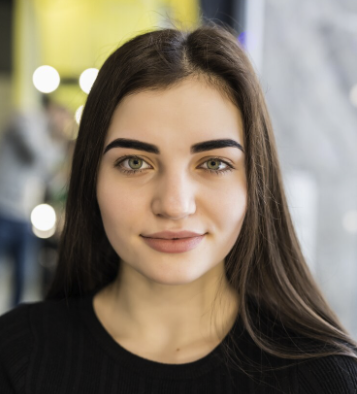Private piano lessons create a focused space where students can explore music in a way that genuinely reflects their goals and personality. Unlike group classes, which require a uniform pace and teaching method, one-on-one instruction offers flexibility that can be shaped around individual strengths, challenges, and interests. A student should focus on classical pieces, jazz improvisation, or composing original music, and private instruction allows for that freedom. This personalized direction fuels motivation and makes the learning process feel more meaningful. The pacing becomes smoother, progress becomes measurable, and the relationship between student and teacher adds consistency and encouragement. While technique and theory are essential, private instruction goes beyond the notes, giving students the confidence to experiment, ask questions, and learn without fear of judgment. It’s this personal attention and adaptability that make private lessons a transformative experience, especially for students who thrive in quieter, more customized environments.
Opening the Door to Focused Growth
-
The Role of Piano Lessons in Daily Routine
Incorporating music lessons into everyday life does more than develop skill—it introduces rhythm, discipline, and mindfulness into one’s weekly routine. For children, the structure of a piano lesson provides a calm, focused activity amid a busy school schedule. For adults, it becomes a grounding moment in a day often filled with digital noise or work stress. One-on-one instruction encourages regular practice, but not just for technical improvement—it’s also a form of mental reset. Sitting down at the piano to work through a new piece becomes a daily ritual that helps strengthen concentration and build patience. The act of repeating passages, adjusting finger placement, or refining musical phrasing trains the brain to slow down and focus on the task at hand. Many families who begin private piano lessons in Baltimore, MD, quickly find that it changes the atmosphere at home. The piano no longer sits silent—it becomes part of daily life, echoing the progress, dedication, and creativity of the person learning to play it.
-
The Emotional Benefits of One-on-One Musical Instruction
Music is an emotional language, and learning to speak it fluently helps students become more attuned to themselves. Private piano lessons offer a quiet space for emotional exploration through music. Students aren’t just learning to press keys in the correct sequence—they’re learning to express joy, tension, sadness, and hope through sound. This connection to feeling often becomes even more pronounced in one-on-one lessons, where students can openly discuss the mood of a piece or interpret it in their way. Young children who struggle to put feelings into words often find that the piano becomes their voice, while teens and adults can use their musical practice to process complex emotions. This emotional release is subtle, yet incredibly powerful.

It supports mental well-being and provides a healthy outlet for stress and anxiety. The relationship built with a teacher also creates a safe space where students can feel supported, not just as musicians, but as individuals navigating their journey.
-
Building Musical Identity Over Time
Private piano lessons offer more than a linear path of skill development—they provide the opportunity to build a musical identity that evolves with the student. What begins as learning scales and basic pieces often develops into something uniquely expressive. Students start to discover the genres they love, the composers they admire, or even the original music they want to create. A good teacher encourages this discovery, guiding students toward pieces that challenge them while nurturing their style. With each lesson, the student’s sense of self as a musician becomes clearer. Some may find confidence in performance, while others prefer the private joy of playing for themselves. Over time, this identity becomes part of how they see themselves—someone who can sit at a piano and create something beautiful, whether through careful interpretation or spontaneous improvisation. That sense of ownership keeps students connected to the instrument long after formal lessons end, creating a lifelong bond with music.
-
Piano as a Bridge Between Generations
One of the most heartwarming outcomes of private piano lessons is how they connect people across generations. Children who learn to play often find joy in performing for parents or grandparents, creating a shared experience that strengthens family bonds. For older adults, returning to the piano can bring back memories of childhood lessons or create new opportunities to bond with grandchildren through music. The piano becomes more than just an instrument—it becomes a medium through which stories are told, traditions are passed on, and memories are made. In families where multiple generations play, it’s common to see informal duets, music-filled gatherings, or shared moments of quiet practice. Private instruction helps make these connections possible by fostering confidence and consistency in the player. As skills grow, so does the joy of sharing those skills with others. Music becomes a common language, spoken across ages, offering both celebration and comfort in every note.
-
When Music Becomes a Lifelong Companion
What begins as a weekly lesson can evolve into a lifelong friendship with the piano. Private piano instruction lays the foundation for a skill that can follow a person through every phase of life. Even students who take breaks from formal instruction often return to the keyboard during times of change or reflection, finding comfort in the familiar feel of the keys. The ability to sit down and play is not just a talent—it’s a personal resource, one that supports relaxation, emotional expression, and individual achievement. Students who grow up with private lessons often carry the discipline, curiosity, and confidence they gain into other areas of their lives. Music becomes not just something they do, but something they are part of. It weaves itself into routines, memories, and even relationships.

That quiet moment at the piano, whether spent practicing or playing freely, becomes a treasured ritual, constant in a world that’s constantly changing.
More Than Just Lessons: A Gateway to Creativity
Private piano lessons are about more than mastering scales or preparing for recitals. They are about cultivating a space where music, self-discovery, discipline, and creativity intersect. Through personalized instruction, students gain not only technical skills but also a deeper understanding of themselves and their unique way of engaging with music. As the lessons unfold week by week, the piano becomes both a challenge and a refuge—a place where ideas are shaped, emotions are processed, and joy is created. Whether the student is young or old, learning for the first time or returning after a long break, private instruction provides a steady rhythm in a fast-paced world. And while not every student will go on to perform on grand stages, every student will walk away with something even more meaningful: the ability to create, connect, and enjoy music for a lifetime.




